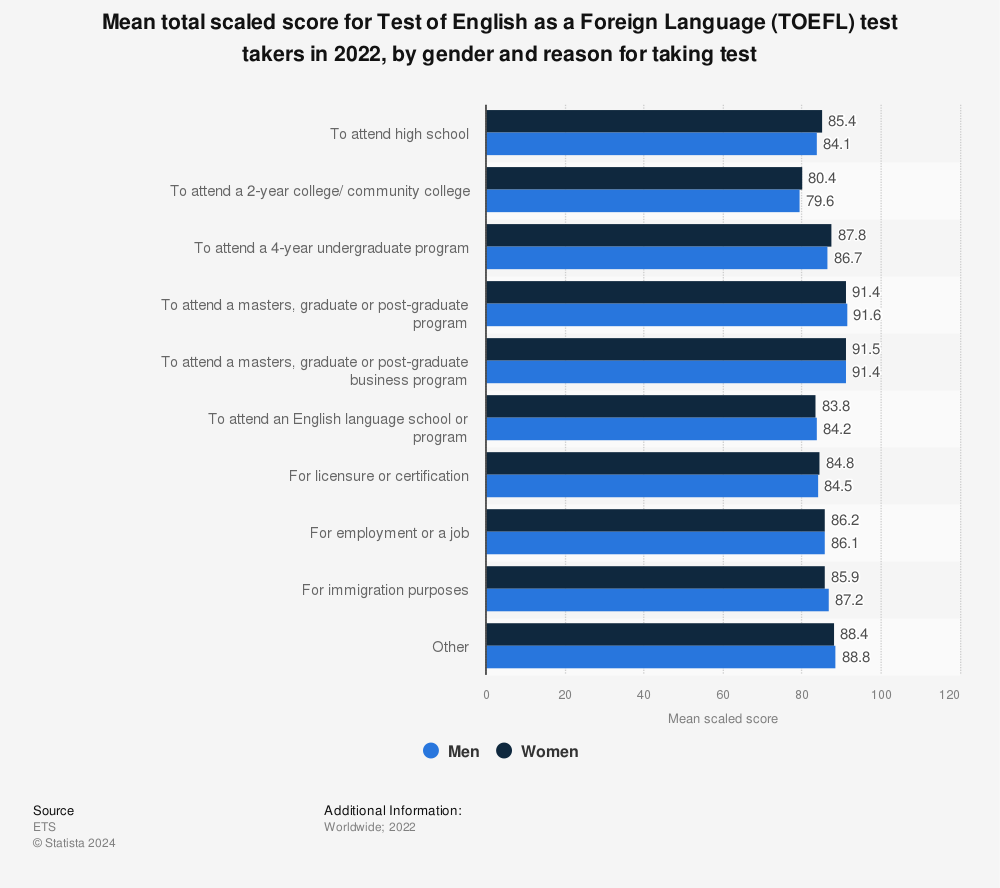In this comprehensive guide, we will delve into the nuances of IELTS preparation, including the significance of practice tests, strategies for each module and optimal approaches to maximise your scores.
Introduction to the TOEFL
The TOEFL (Test of English as a Foreign Language) is an English language proficiency exam produced by the ETS, the same organization that develops the GRE (an exam for grad school admissions) and several other tests.
There are several versions of the TOEFL, either paper-based or computer-based. This guide will focus on the TOEFL iBT which is administered over the internet. The TOEFL iBT is, by far, the most taken and accepted version of the TOEFL.
How to Prepare for IELTS Exam?
Preparation for the IELTS exam involves a multifaceted approach encompassing comprehensive study, strategic practice and familiarization with the exam format. Central to this preparation is the utilisation of practice tests, which serve as invaluable tools for assessing proficiency, identifying strengths and weaknesses and refining test-taking strategies.
The Role of Practice Tests:
IELTS practice tests offer candidates a simulated experience of the actual exam, providing exposure to the format, structure and types of questions encountered. These practice tests help familiarise candidates with timing constraints, question styles and scoring criteria, thus enhancing confidence and readiness for the exam day.
Module-Specific Preparation Strategies:
- Listening: Practice listening to a variety of English accents and genres, such as lectures, conversations, and presentations. Utilize practice tests to improve your ability to grasp key information, follow instructions, and identify main ideas and details.
- Reading: Enhance your reading comprehension skills by engaging with a range of academic texts, articles, and passages. Practice skimming and scanning techniques to quickly locate information and focus on understanding the main ideas, opinions, and arguments presented in the texts.
- Writing: Develop your writing skills by practicing different types of writing tasks, including essays, reports, and letters. Focus on organizing your ideas logically, structuring your responses effectively, and demonstrating coherence, cohesion, and clarity in your writing.
- Speaking: Practice speaking English fluently and confidently by engaging in conversations, participating in group discussions, and delivering presentations. Use practice tests to simulate speaking tasks, record yourself, and evaluate your pronunciation, vocabulary usage, and ability to express ideas coherently.
Optimal Approach to Practice Tests:
- Simulate Exam Conditions: Create a quiet, distraction-free environment and strictly adhere to the allotted time for each section. Mimic the exam conditions as closely as possible to simulate the pressure and constraints of the actual test.
- Review and Analyse: After completing each practice test, review your answers, identify any errors or areas for improvement, and analyse the patterns or trends in your performance. Use this feedback to adjust your study plan and focus on strengthening weak areas.
- Utilise Resources: Take advantage of a variety of practice test materials, including official IELTS practice tests, sample questions, and online resources. Familiarise yourself with the test format, question types, and scoring criteria to optimise your preparation.
TOELF Test takers in 2022 by gender and reason
As students embark on their journey to conquer the IELTS exam, comprehensive coaching and strategic practice are essential. Many TOEFL test takers in 2022 take up these exams for particular reasons. According to the Statista chart below, in 2022, the main reason was to enter high school.
Study Mind provides comprehensive exam preparation for students of all ages, across a range of academic milestones. They specialise in supporting students as they prepare for key exams including the 11+ exam, GCSEs, A-Levels, the International Baccalaureate (IB), IELTS and various further education assessments.










